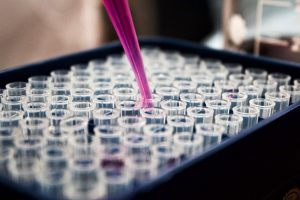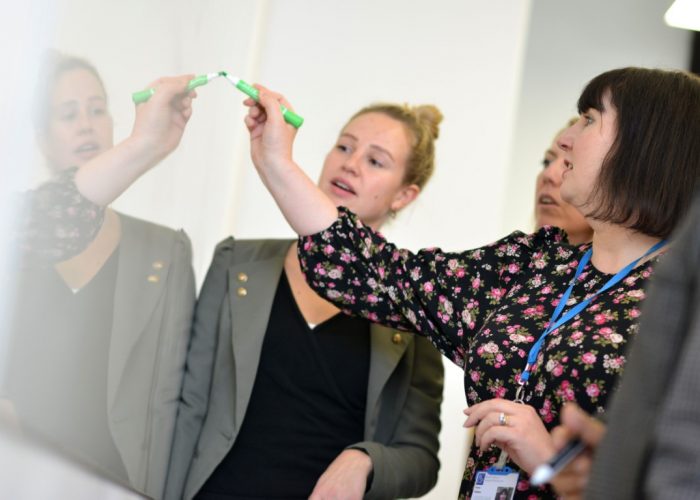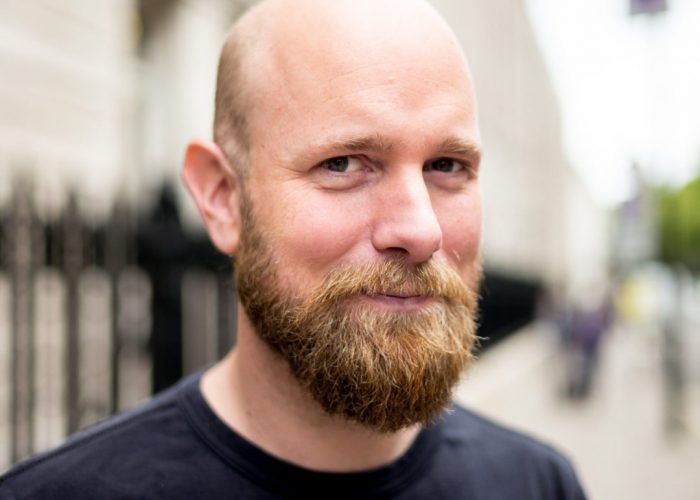 New research, commissioned by healthtech company Mendelian and undertaken by Imperial College Health Partners (ICHP), has, for the first time, shed light on the cost and resource impact the lengthy process of diagnosing rare diseases is having on the NHS. The research, which was collated using the Hospital Episode Statistics (HES)* NHS Digital database of over 60 million patients, found that over the last 10 years, rare disease patients during the diagnosis period have cost NHS England in excess of £3.4 billion. Using an analysis based on a cohort of 258,235 patients diagnosed with a rare disease during a 12 month period (2017/2018), the research focused on hospital visits and activity in the lead-up to diagnosis over the prior 10 years.**
New research, commissioned by healthtech company Mendelian and undertaken by Imperial College Health Partners (ICHP), has, for the first time, shed light on the cost and resource impact the lengthy process of diagnosing rare diseases is having on the NHS. The research, which was collated using the Hospital Episode Statistics (HES)* NHS Digital database of over 60 million patients, found that over the last 10 years, rare disease patients during the diagnosis period have cost NHS England in excess of £3.4 billion. Using an analysis based on a cohort of 258,235 patients diagnosed with a rare disease during a 12 month period (2017/2018), the research focused on hospital visits and activity in the lead-up to diagnosis over the prior 10 years.**
An analysis of the data found a higher number of hospital visits and accompanying costs per rare disease patient when compared to the general patient population. Although the rare disease cohort included in this assessment only made up 0.94% of the HES reported hospital population during 2017/2018, over the preceding 10 years, they cost an average of over 2X more per patient compared with other patients who had a hospital visit during that year – requiring more resources on average and more costs per treatment (indicating an average individual difference of over £7,000). Furthermore, in a comparison of 64 inpatient and outpatient procedures, the total cost for the rare disease patient cohort outweighed the costs of the comparative population in the majority of procedures.
On a global scale, it is estimated that rare diseases affect 350 to 400 million people and around 1 in 17 people will have a rare disease at some point in their lives. Previous studies have also shown that rare disease diagnosis may take between 5 to 30 years, depending on the disease and healthcare setting and in the UK, it takes an average of 5.6 years, eight clinicians (including four specialists) and three misdiagnoses before the correct rare disease is identified.*** Commissioned by Mendelian, a healthtech company building the world’s largest repository of information to help accelerate the diagnosis of rare diseases, the research builds on this existing knowledge to give a clearer picture of just how costly identifying these types of illnesses can be to healthcare systems.
Peter Fish, MD and Head of Clinical Partnerships at Mendelian said: “The ‘diagnostic odyssey’ for rare diseases is often fraught with emotional turmoil and suboptimal care for patients, frustration for clinicians and is also extremely costly for hospitals and associated trusts. This new research has given us a rare insight into the extent of this financial burden on the NHS and will hopefully also help us along the path to effective solutions, not just in the UK but also globally. At Mendelian, our mission is to help solve the problems around identifying rare diseases by using cutting-edge technology to enable physicians and hospitals to diagnose faster and more accurately, to the benefit of both patients and the healthcare systems that support them.”
Julia Wilkins, Head of Data and Analytics at Imperial College Health Partners said: “The costs to the NHS highlighted by the research are in fact only the tip of the iceberg, due to the fact that routine healthcare data does not yet fully capture the true extent of the thousands of different rare disease classifications that can pass through the system. For example, the International Classification of Diseases (ICD-10) is believed to only account for approximately 5% of known rare diseases. Therefore, these recent findings might well be extrapolated in order to anticipate a complete picture of the impact of diagnosing rare diseases on the NHS, both in terms of cost and resource utilisation, which is most likely considerably larger than the estimate outlined.”
For further information, interviews and images, please contact: mendelian@33seconds.co
* The HES data reports were developed by ICHP in partnership with Harvey Walsh Ltd (ICHP data partners) via a data sharing agreement with NHS Digital (DARS-NIC-05934-M7V9K)
** Please note, the research data as described above is based on hospital activity and visits including all admissions, outpatient appointments, hospital day cases, and A&E attendances at NHS Hospitals in England. It does not include drug treatment costs (as this occurs post diagnosis) or primary care data (GP visits).
***https://globalgenes.org/wp-content/uploads/2013/04/ShireReport-1.pdf
Notes to editors
About Mendelian
Mendelian is a technology company building the world’s largest repository of information to help accelerate the diagnosis of rare diseases. The company is a team of eight based in London, with a wealth of experience across a range of complimentary disciplines including business, machine learning, data science, design and medicine. Currently Mendelian’s free service has been used by clinicians and specialists (geneticists, pediatricians, neurologists, cardiologists) across a range of disciplines in more than 150 countries.
About ICHP
Imperial College Health Partners (ICHP) innovates and collaborates for a healthier population. We turn the potential of innovation into reality to help solve pressing challenges by collaborating across the health sector. By connecting a unique network of health experts we can accelerate the adoption and spread of innovation amongst our member organisations. We are a partnership organisation bringing together NHS providers of healthcare services, clinical commissioning groups and leading universities across North West London. We are also the designated Academic Health Science Network (AHSN) for North West London and a member of The AHSN Network.
For media enquiries relating to the research please contact Natalie Hudson on Natalie.hudson@imperialcollegehealthpartners.com or 07957 699884.



